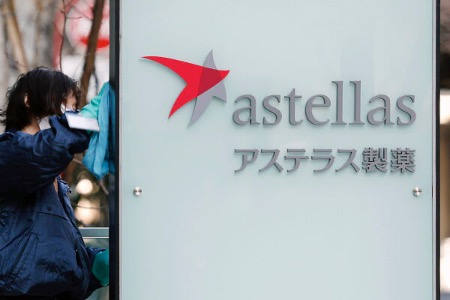Manufacturing Issues Block Astellas From a First-in-Class Cancer Drug Approval
January 16, 2024
Source: drugdu
 449
449
Astellas Pharma’s zolbetuximab was on track to become the first gastric cancer drug that targets claudin 18.1, a protein found on cancerous stomach cells. Others with clinical-stage programs addressing this this target include AstraZeneca and Bristol Myers Squibb.
By FRANK VINLUAN
 Astellas Pharma’s path to winning the first drug approval for a particular promising gastrointestinal cancer target has hit a detour. The FDA turned down the drugmaker’s application, citing manufacturing issues for the therapy, zolbetuximab.
Astellas Pharma’s path to winning the first drug approval for a particular promising gastrointestinal cancer target has hit a detour. The FDA turned down the drugmaker’s application, citing manufacturing issues for the therapy, zolbetuximab.
Astellas announced the FDA action earlier this week. The company did not go into detail about the problems spotted by the regulator, but described them as “unresolved deficiencies following its pre-license inspection of a third-party manufacturing facility for zolbetuximab.” Astellas added that the agency did not raise any concerns about the safety or efficacy of the drug, nor is it asking for additional clinical data.
Zolbetuximab was developed as a treatment for patients with locally advanced or metastatic gastric or gastroesophageal junction (GEJ) adenocarcinoma that is negative for the cancer protein HER2. Cancers that express HER2 already have treatments, such as Herceptin from Genentech and Enhertu from partners AstraZeneca and Daiichi Sankyo. HER2-negative cancers have fewer treatment options. Astellas aims to offer one with zolbetuximab, which targets claudin 18.2, or CLDN18.2. This protein is found only in stomach cells and not in any other healthy tissues. That’s what makes it a promising target for drugs that treat gut cancers.
The Astellas drug is a monoclonal antibody designed to target and bind to CLDN18.2 on the surface of cancerous gastric epithelial cells. Doing so is intended to kill the cancer cells by activating two different immune system pathways: antibody-dependent cellular cytotoxicity and complement-dependent cytotoxicity.
Astellas added zolbetuximab to its pipeline through the 2016 acquisition of Germany-based Ganymede Pharmaceuticals for €422 million (about $462 million) up front. Zolbetuximab is a key piece of Astellas’s growth strategy. It’s important because it could help make up for coming revenue declines facing Xtandi, the drugmaker’s top-selling product that is facing patent expirations. Zolbetuximab is under regulatory review in other markets including Japan, Europe, and China.
“We remain confident in zolbetuximab’s clinical profile and potential to fill a significant therapeutic gap for those diagnosed with advanced gastric or GEJ cancer whose tumors are CLDN18.2 positive,” Moitreyee Chatterjee-Kishore, Astellas senior vice president and head of immuno-oncology, said in a prepared statement. “Astellas is committed to working with the FDA and the third-party manufacturer to address the agency’s feedback, and to bringing zolbetuximab to U.S. patients in need, as soon as possible.”
Several other companies are also developing CLDN18.2-targeting drugs. AstraZeneca’s early-stage program, licensed from KYM Biosciences last year, is part of the class of cancer therapies called antibody drug conjugates, or ADCs. Bristol Myers Squibb and Elevation Oncology are also in Phase 1 testing with their respective CLDN18.2-targeting ADCs. Merck KGaA holds an option to license a Jiangsu Hengrui Pharmaceuticals ADC for that target under a deal it struck with the China-based biotech last fall. Meanwhile, Alentis Therapeutics has two programs, an antibody and an ADC, each of them targeting the related claudin 1 protein.
Photo: Kiyoshi Ota/Bloomberg, via Getty Images
By editorRead more on
- Jinghong Medical Secures Series A Strategic Financing, Co-led by Venture Capital and Binhu Industrial Group with FTEC Capital as Exclusive Financial Advisor December 29, 2025
- Brazil to launch single-dose dengue vaccination program; Chinese companies help boost vaccine production capacity December 29, 2025
- China Biopharmaceutical’s innovative drug TQH3906 completes Phase II clinical trial. December 29, 2025
- Transcenta Group-B and EirGenix Reach Biopharmaceutical Manufacturing Collaboration Agreement December 29, 2025
- Sinovac Biotech’s adsorbent tetanus vaccine officially launched December 29, 2025
your submission has already been received.
OK
Subscribe
Please enter a valid Email address!
Submit
The most relevant industry news & insight will be sent to you every two weeks.



